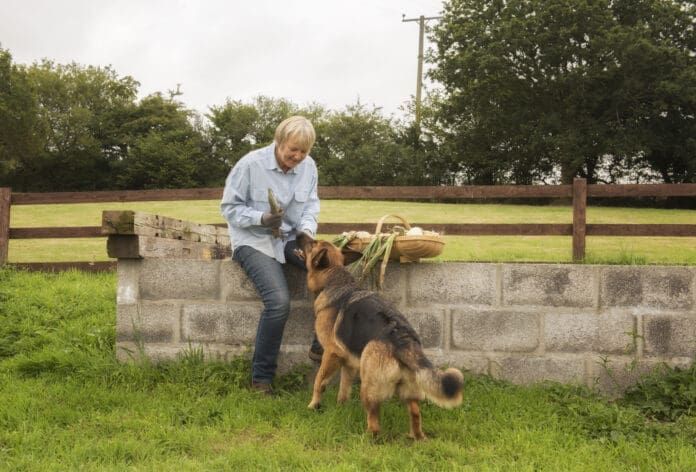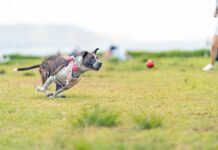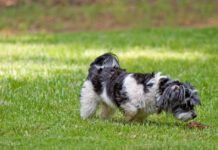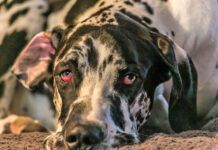Approximately 100 grams – about a half cup – of onion can be toxic to a 45-lb. dog. Onion powder is more concentrated, and therefore worse, but most dogs only get powder in small amounts in cooked foods.
A dog who ate an onion may vomit or have diarrhea, refuse to eat, and may have oral or gastric pain. You may notice difficulty breathing, lethargy, and/or feel a rapid heartbeat. Be aware, however: “Signs may not occur until several days after ingestion,” according to the American College of Apothecaries.
The toxic compound in onions is N-propyl disulphide. This substance destroys red blood cells and can lead to anemia. With anemia, your dog may become weak and lethargic. You might notice a rapid heartbeat if you feel your dog’s chest or see that his gums are pale.
What to Do If Your Dog Eats an Onion
If you realize your dog ate an onion, try to make him vomit. A tiny piece of onion won’t be a big problem in most dogs, except small dogs, but any large chunks or whole onions can cause toxicity. Contact your veterinarian immediately, even if you made your dog vomit.
The vet will induce vomiting and give activated charcoal to try and bind the toxic compound. In severe cases, your dog may need a transfusion. Blood samples will be drawn to check for anemia and Heinz bodies (damaged red blood cell proteins). Your dog may need recheck blood samples to ensure he is recovering from the onion ingestion.
Many onion exposures are small but if repeated could cause symptoms just like one big exposure. If you are feeding baby food to a tiny puppy or to tempt a finicky or sick dog, always check the ingredients. Many of these products include onion powder. If you cook a soup using onions, onion powder, or garlic in any form, do not share any with your dog.
Why Your Dog Keeps Eating Onions
Unfortunately, a whole onion may look like a toy or a ball to a dog, and they may chew on one while basically playing with it. Do not allow your dog to ingest or play with any allium vegetables, including onions, leeks, shallots, chives, or garlic. This includes the vegetables and powders. Ornamental chives also contain the toxic compound, so fence off areas in your garden with potentially dangerous flowers as well as any toxic vegetables. Many foods are toxic to dogs, and it’s wise to familiarize with them.
Dogs can eat many vegetables, including carrots – baby carrots are a little-dog favorite – and green beans (many dogs like them frozen!). Vegetables are a great healthy treat for dogs.





